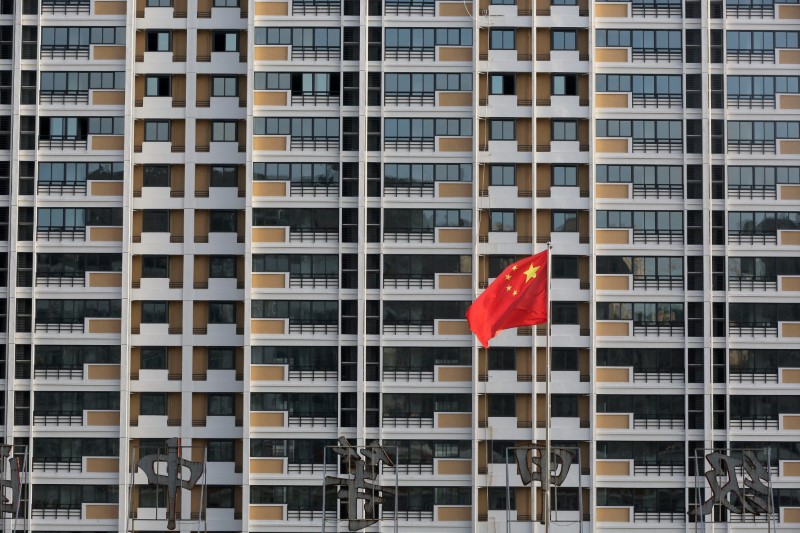This post was originally published on this site
https://i-invdn-com.akamaized.net/news/LYNXMPEB2C0AG_M.jpg © Reuters. Chinese government shell firms buy cash-strapped companies for first time
© Reuters. Chinese government shell firms buy cash-strapped companies for first timeBy Samuel Shen, Cheng Leng and Ryan Woo
SHANGHAI/BEIJING (Reuters) – Local government shell companies in China bought into struggling privately run listed firms for the first time last year, veering from their typical remit of financing infrastructure projects to pump over $2 billion into cash-strapped businesses.
Local government financing vehicles (LGFVs) acquired controlling or near-dominant stakes in 11 China-listed firms, showed Reuters calculations based on stock exchange filings. They also bought into a handful of small, capital-starved banks.
The stimulus comes amid central government calls to aid struggling private-run businesses at a time when economic growth has slowed to its weakest pace in almost 30 years.
At the same time, the government has moved to curb LGFV activity to stem financial risk, calling on them to operate independently and banning local authorities from offering them implicit guarantees.
Buying into struggling firms, however, raises concern about the weight of LGFVs’ own debt pile which S&P Global Ratings said was as much as $6 trillion in October 2019 – a year in which they sold a record $430 billion worth of bonds.
Of last year’s 11 deals, the biggest was the $500 million Jinan Urban Construction Group Co Ltd paid for 26% of textile conglomerate Shandong Ruyi, which has racked up substantial debt after an international luxury brand buying spree.
In another deal, Harbin Economic Development & Investment Co and another government-backed asset manager bought a 48% controlling stake in Harbin Bank Co Ltd (HK:), loosening the lender’s ties with embattled conglomerate Tomorrow Holdings Co Ltd.
LGFVs flourished in the aftermath of the 2008 global financial crisis as local authorities used them to finance infrastructure projects while skirting central government budget limits.
Today, some weaker LGFVs are themselves flirting with default and not all will get a local government bailout, Ivan Chung, head of Greater China Credit Research at Moody’s said.
“If a company has a relatively big debt problem or operational issue, rescuing it today could lead to bigger woes tomorrow.”
In one sign of stress, an LGFV in Inner Mongolia narrowly missed a bond default in December, prompting calls from central bank advisors to draw up rescue plans for LGFVs themselves.
To minimize systemic risk, the central government should gradually let weak businesses fail – including LGFVs – rather than rescue them indiscriminately, said economist Chi Lo at BNP Paribas (PA:) Asset Management.
“I believe eventually it will allow more and bigger LGFVs to exit the system,” he said.
Fusion Media or anyone involved with Fusion Media will not accept any liability for loss or damage as a result of reliance on the information including data, quotes, charts and buy/sell signals contained within this website. Please be fully informed regarding the risks and costs associated with trading the financial markets, it is one of the riskiest investment forms possible.

